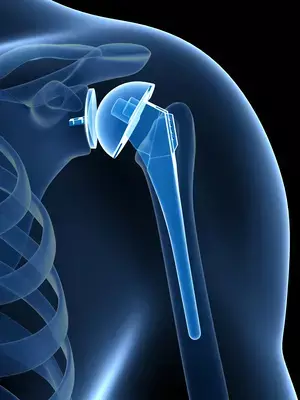- Home
- Medical news & Guidelines
- Anesthesiology
- Cardiology and CTVS
- Critical Care
- Dentistry
- Dermatology
- Diabetes and Endocrinology
- ENT
- Gastroenterology
- Medicine
- Nephrology
- Neurology
- Obstretics-Gynaecology
- Oncology
- Ophthalmology
- Orthopaedics
- Pediatrics-Neonatology
- Psychiatry
- Pulmonology
- Radiology
- Surgery
- Urology
- Laboratory Medicine
- Diet
- Nursing
- Paramedical
- Physiotherapy
- Health news
- Fact Check
- Bone Health Fact Check
- Brain Health Fact Check
- Cancer Related Fact Check
- Child Care Fact Check
- Dental and oral health fact check
- Diabetes and metabolic health fact check
- Diet and Nutrition Fact Check
- Eye and ENT Care Fact Check
- Fitness fact check
- Gut health fact check
- Heart health fact check
- Kidney health fact check
- Medical education fact check
- Men's health fact check
- Respiratory fact check
- Skin and hair care fact check
- Vaccine and Immunization fact check
- Women's health fact check
- AYUSH
- State News
- Andaman and Nicobar Islands
- Andhra Pradesh
- Arunachal Pradesh
- Assam
- Bihar
- Chandigarh
- Chattisgarh
- Dadra and Nagar Haveli
- Daman and Diu
- Delhi
- Goa
- Gujarat
- Haryana
- Himachal Pradesh
- Jammu & Kashmir
- Jharkhand
- Karnataka
- Kerala
- Ladakh
- Lakshadweep
- Madhya Pradesh
- Maharashtra
- Manipur
- Meghalaya
- Mizoram
- Nagaland
- Odisha
- Puducherry
- Punjab
- Rajasthan
- Sikkim
- Tamil Nadu
- Telangana
- Tripura
- Uttar Pradesh
- Uttrakhand
- West Bengal
- Medical Education
- Industry
Tranexamic acid use for shoulder arthroplasty reduces peri operative blood loss : study in JCM

Poland: Tranexamic acid (TXA) is an antifibrinolytic agent that has been shown to decrease blood loss and transfusion rates after knee and hip arthroplasty, however with only limited evidence to support its use in shoulder arthroplasty. With the increase in the number of TSA performed, and the constant expansion of the indications qualifying for the procedure, there is a need to reduce postoperative complications and improve the procedure's results. Therefore, Roslaw Pecold et al performed a systematic review and meta analysis to evaluate the clinical usefulness of tranexamic acid for shoulder arthroplasty.
A thorough literature search was conducted across four electronic databases (PubMed, Cochrane Library, Web of Science, Scopus) from 2015 to 1 December 2021. The mean difference (MD), odds ratio (OR) or relative risk (RR) and 95% confidence interval (CI) were used to estimate pooled results from studies. Studies that were included in this meta-analysis had to fulfil the following PICOS criteria:
(1) Participants, patients with 18 years old or older requiring shoulder arthroplasty;
(2) Intervention, tranexamic acid treatment;
(3) Comparison, non-TXA treatment;
(4) Outcomes, operative data and adverse events occurrence;
(5) Study design, randomized controlled trials and retrospective trials comparing TXA and non-TXA care for their effects in patients with shoulder arthroplasty.
Studies were excluded if they were reviews, animal studies, case reports, letters, conference or poster abstracts, or articles not containing
original data.
Total of 10 studies comprising of 993 patients met the inclusion criteria and were included in the analysis. Seven studies were designed as randomized controlled trials.
• The mean age of participants in TXA and non-TXA groups was 59.6 ± 21.5 and 60.3 ± 21.3 years, respectively. The men constituted 51.5% vs 49.4%, respectively, for TXA and non-TXA groups.
• Blood volume loss in the TXA and non-TXA group was 0.66 ± 0.52 vs. 0.834 ± 0.592 L (MD= −0.15; 95%CI: −0.23 to −0.07; p < 0.001).
• Change of hemoglobin levels were 2.2 ± 1.0 for TXA group compared to 2.7 ± 1.1 for non-TXA group (MD= −0.51; 95%CI: −0.57 to −0.44; p < 0.001) and
• Hematocrit change was 6.1 ± 2.7% vs. 7.9 ± 3.1%, respectively; (MD= −1.43; 95%CI: −2.27 to −0.59; p < 0.001).
• The hematoma occurrence rate in the TXA group was 20.4%, while in non-TXA patients it was 53.8%.
• Thromboembolic complications were not noted in any of the groups.
The authors concluded that - Tranexamic acid use for shoulder arthroplasty reduces blood volume loss during and after surgery and reduces drain output and hematocrit change.
The data collected indicate statistically and clinically significant findings regarding the manner and safety of TXA application. Because of the limited high-quality evidence currently available, there is a need for further in-depth analysis of the available studies in terms of the most beneficial way of TXA application.
Further reading :
Tranexamic Acid for Shoulder Arthroplasty: A Systematic Review and Meta-Analysis
Jaroslaw Pecold , Mahdi Al-Jeabory , Maciej Krupowies , Ewa Manka , Adam Smereka , Jerzy Robert Ladny and Lukasz Szarpak
J. Clin. Med. 2022, 11, 48.
https://doi.org/10.3390/jcm11010048
MBBS, Dip. Ortho, DNB ortho, MNAMS
Dr Supreeth D R (MBBS, Dip. Ortho, DNB ortho, MNAMS) is a practicing orthopedician with interest in medical research and publishing articles. He completed MBBS from mysore medical college, dip ortho from Trivandrum medical college and sec. DNB from Manipal Hospital, Bengaluru. He has expirence of 7years in the field of orthopedics. He has presented scientific papers & posters in various state, national and international conferences. His interest in writing articles lead the way to join medical dialogues. He can be contacted at editorial@medicaldialogues.in.
Dr Kamal Kant Kohli-MBBS, DTCD- a chest specialist with more than 30 years of practice and a flair for writing clinical articles, Dr Kamal Kant Kohli joined Medical Dialogues as a Chief Editor of Medical News. Besides writing articles, as an editor, he proofreads and verifies all the medical content published on Medical Dialogues including those coming from journals, studies,medical conferences,guidelines etc. Email: drkohli@medicaldialogues.in. Contact no. 011-43720751


